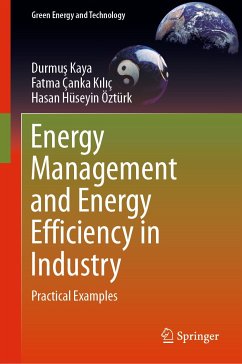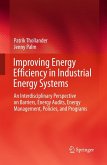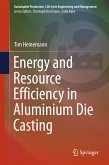This book is presented to demonstrate how energy efficiency can be achieved in existing systems or in the design of a new system, as well as a guide for energy savings opportunities. Accordingly, the content of the book has been enriched with many examples applied in the industry. Thus, it is aimed to provide energy savings by successfully managing the energy in the readers' own businesses.
The authors primarily present the necessary measurement techniques and measurement tools to be used for energy saving, as well as how to evaluate the methods that can be used for improvements in systems. The book also provides information on how to calculate the investments to be made for these necessary improvements and the payback periods. The book covers topics such as:
. Reducing unit production costs by ensuring the reduction of energy costs,
. Efficient and quality energy use,
. Meeting market needs while maintaining competitive conditions,
. Ensuring the protection of the environment by reducing CO2 and CO emissions with energy saving and energy efficiency,
. Ensuring the correct usage of systems by carrying out energy audits.
In summary, this book explains how to effectively design energy systems and manage energy to increase energy savings. In addition, the study has been strengthened by giving some case studies and their results in the fields of intensive energy consumption in industry.
This book is an ideal resource for practitioners, engineers, researchers, academics, employees and investors in the fields of energy, energy management, energy efficiency and energy saving.
Dieser Download kann aus rechtlichen Gründen nur mit Rechnungsadresse in A, B, BG, CY, CZ, D, DK, EW, E, FIN, F, GR, HR, H, IRL, I, LT, L, LR, M, NL, PL, P, R, S, SLO, SK ausgeliefert werden.









